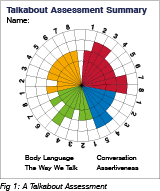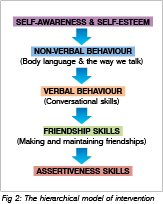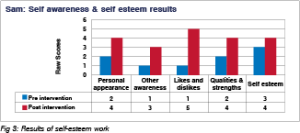The keys to a successful approach
The importance of being socially skilled cannot be underestimated. We all need these skills to communicate effectively in order to listen to others, to express ourselves, to be taken seriously and to make friends. However, not all children develop social competence naturally. Some children are socially unskilled and require intervention. As a result, some struggle with their self-esteem and most struggle with friendships. But where do we start? What can we do? And how can we evidence what we have done?
Why are social skills so important?
Firstly, good social skills help children to stay out of trouble. A recent study showed that between 60 and 90% of young people who pass through young offender institutions have communication difficulties and this includes problems with social communication skills.
Secondly, our self-identity and self-worth come from our relationships and indeed friends often take centre stage in a child’s life. We also know that having friends helps children’s social, emotional and cognitive development. A growing body of research suggests that children who do well socially are more likely to do well academically and that social competence is a critical variable in predicting success in future life.
This is not new information. We have known this for many years. When schools attend systematically to students’ social and emotional skills, their academic achievement increases, the incidence of problem behaviours decreases and the quality of the relationships surrounding each child improves.
The trouble is, in a world where evidence is essential and measuring outcomes is mandatory, social skills are mostly not prioritised in school. But can social skills work be measured effectively and then seen more as a priority? I believe it can, and over the past 10 years I have been working with schools to evidence the impact of their work. The results have been encouraging across all schools but there are five factors that are essential if schools are to measure their success effectively.
1. Use a quantifiable assessment as a ‘before’ and ‘after’ measure
Schools ideally should complete an initial assessment of the child’s social skills and then repeat the assessment at the end of the work. Any social skills assessment can be used as long as the results can be quantified and then the pre and post scores can be used to identify areas of improvement. However, if you are using the Talkabout programme, you can assess a child’s self-awareness and self-esteem using the Talkabout Interview and their social skills using the Talkabout Assessment Tool (see figure 1). This is your long-term measure of success and can be done several times throughout a child’s time at school. We usually recommend that once a child has been identified as requiring this work, a baseline assessment is completed and then repeated annually.

Fig 1: A Talkabout Assessment
2. Use a hierarchical approach to teaching social skills
Following assessment, it is important to identify areas of need and then to work on skills that will set the child up to succeed. Schools that spend time developing the foundation skills of self-esteem and self-awareness, and then concentrate on body language prior to the more complex areas of conversational skills, friendship skills and assertiveness, are more likely to see progress with their pupils (see figure 2).

Fig 2: The hierarchical model of intervention

Fig 3: Results of self-esteem work
3. Set specific targets
Schools should be encouraged to set short term targets that will evidence progress in a more detailed way. For example: ‘Sam will to be able to give 3 positive qualities about himself’. These can then be assessed on a 6-point rating scale from ‘skill not present’ to ‘skill present and consistent in all situations’. These scores can also be entered into a spreadsheet to provide a visual summary of progress (see figure 3).
4. Staffing
Schools are naturally at an advantage where a few key staff have had training in social skills. This doesn’t have to be the SENCo or a teacher. Some of the best examples of practice have been seen in schools where one or two teaching assistants have coordinated the intervention. They do need to have certain skills, such as good social skills themselves and an ability to facilitate a small group. They also need some knowledge of the subject, such as knowing the rules for appropriate eye contact and how to help pupils develop this skill. It is also useful to have an awareness of other techniques for teaching social skills, such as using modelling, social stories or comic strips.
5. The school climate and school management
This possibly should be the first step to success but, as it is the hardest to define, I thought I would tackle it last! The wider context of the school climate and management is important because it is known to influence peer (and staff) relations in schools in a number of ways. We know that social skills interventions are more effective if they are supported by the environment through encouragement and opportunity; through motivations and rewards being considered and used consistently; and a physical environment that is enabling and communication friendly.
In summary
It is the same story in so many schools I go into both across the UK and abroad; schools know that social skills difficulties can affect self- esteem, educational achievement and general behaviour. The problem is that, if they are going to spend time on developing these skills, they need to be able to measure the effectiveness of the work to give it credibility. Our work over the last ten years has been encouraging. Schools that have invested in doing this work and have followed the previous five points have seen good results and all of them have been able to continue or extend this to other pupils.
A bit about Alex Kelly
Alex Kelly is a speech and language therapist with 33 years’ experience of working with people with social skills difficulties. She is the author of the best-selling TALKABOUT resources and lectures internationally on social skills, self-esteem and friendship skills. She has authored 13 books and numerous activity resources and last year published a theory book on social skills. Alex can be contacted at alex@alexkelly.biz
For information about Alex’s work and the Talkabout resources visit her website www.alexkelly.biz
Read Alex’s full article, with all references, in The Blog at www.speechandlanguage.info
Please login to view this content
Login